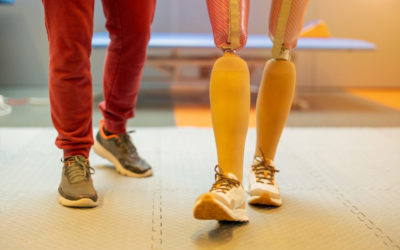Quick Hits
Daily brief research updates from the cognitive sciences

Get into the groove… or so sang Madonna with her hit single in 1985. Little did she know at the time but getting into the groove certainly does seem to be beneficial for you – not to prove your love as she demanded, but in improving cognitive, brain, performance.
Really, yes.
Researchers at the University of Tsukuba in Japan have investigated the impact of groovy music, music related to rhythm and dance, and stimulating the urge to move, on cognitive performance.
To do this these researchers gave cognitive tasks and conducted brain scans using near-infrared spectroscopy (fNIRS) to measure participants before and after playing groovy music.
They found that groovy music improved cognitive performance scores, and this was related to increased function in an area of the brain called the left dorsolateral prefrontal cortex (l-DLPFC). Many prefrontal regions are associated with higher cognitive functions. However, there is a caveat, and that is this effect could only be seen in those participants who said they enjoyed the music only.
So, this raises the question of whether it is groovy music that stimulated this process or simply music that you enjoy – other research has shown the positive benefits of music on just about everything.
So, for you groovers, music that makes you want to move your body, to groove, is likely good for your brain performance. If you don’t like the groove, you can certainly try with any music you like. It will at least elevate your mood and that in itself is no bad thing.

Andy Habermacher
Andy is author of leading brains Review, Neuroleadership, and multiple other books. He has been intensively involved in writing and research into neuroleadership and is considered one of Europe’s leading experts. He is also a well-known public speaker speaking on the brain and human behaviour.
Andy is also a masters athlete (middle distance running) and competes regularly at international competitions (and holds a few national records in his age category).
Reference
Takemune Fukuie, Kazuya Suwabe, Satoshi Kawase, Takeshi Shimizu, Genta Ochi, Ryuta Kuwamizu, Yosuke Sakairi, Hideaki Soya.
Groove rhythm stimulates prefrontal cortex function in groove enjoyers.
Scientific Reports, 2022; 12 (1)
DOI: 10.1038/s41598-022-11324-3
More Quick Hits
The Seven Habits to Reduce Dementia
We would all like to age well remaining cognitively active into older and old age. I have reported multiple times…
Mind Over Matter – Regaining Movement
This is the type of study and insight I like. Kind of amazingly simple but effective
Do We Lose Brain or Muscles First?
As we age things start to decline, we all know that – happens to the best of us…
Cravings for Fatty Food and the Gut-Brain Connection
Research hot off the presses is showing something interesting happening with our desire for fatty food….
How to Form Optimal Groups for Learning
There has been a long-standing debate and discussion in learning contexts for what is the best way to form groups for optimal learning when there are different abilities in those groups…
Extreme Temperatures Increase Hate Speech Online
I am sure we all know that feeling of getting more irritable when temperatures rise – well we now have evidence that…






